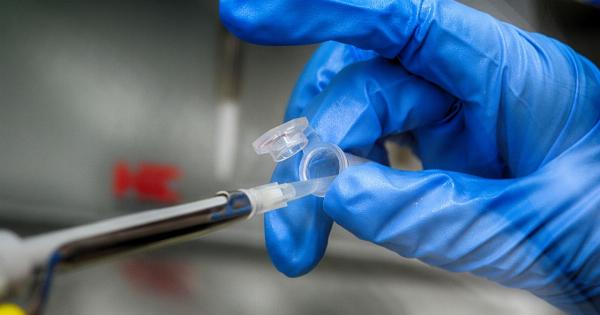Gymnastics is a highly demanding sport that requires strength, flexibility, and mental focus. Athletes perform a variety of acrobatic skills, execute precise routines, and push their bodies to the limit.
To excel in gymnastics, athletes need to optimize their performance, and many turn to caffeine as a means to enhance their training and competitive outcomes. In this article, we will explore the relationship between caffeine and gymnastics and how it can contribute to a winning combination.
The Benefits of Caffeine on Performance
Caffeine is a stimulant that affects the central nervous system, leading to increased alertness and reduced fatigue. It has been widely studied and recognized for its performance-enhancing effects in various sports and activities.
When it comes to gymnastics, the benefits of caffeine are particularly relevant. Here are some ways in which caffeine can positively impact performance:.
1. Enhanced Focus and Concentration
Gymnastics routines require precise movements, impeccable timing, and split-second decision-making. The ability to concentrate and stay focused is crucial for executing routines flawlessly.
Caffeine can help increase mental alertness, allowing gymnasts to maintain better focus during training and competitions.
2. Increased Energy Levels
Gymnastics is a physically demanding sport that requires explosive power, strength, and endurance. Caffeine acts as a stimulant, increasing adrenaline production and providing a temporary energy boost.
This can help gymnasts perform at their best and maintain their energy levels throughout their routines.
3. Improved Reaction Time
Reacting quickly to unexpected situations and making split-second decisions is essential in gymnastics.
Caffeine has been shown to improve reaction time, helping gymnasts respond faster to changes in their environment or execute dynamic skills with precision.
4. Reduced Perceived Effort
Gymnastics training can be physically and mentally taxing. The ability to push through fatigue and discomfort is key to achieving success.
Caffeine has been found to reduce the perception of effort, making challenging training sessions feel more manageable. This can enable gymnasts to train at higher intensities and optimize their performance.
5. Fatigue Delay
Gymnastics competitions can be long and grueling, requiring athletes to perform multiple routines and maintain their energy levels throughout the event.
Caffeine has been shown to delay fatigue, allowing gymnasts to perform at a high level for a longer period of time and potentially giving them a competitive edge.
The Optimal Timing for Caffeine Consumption
While caffeine can offer numerous benefits to gymnasts, it’s essential to understand the optimal timing for its consumption. Here are some guidelines to consider:.
1. Pre-Training and Pre-Competition
Consuming caffeine about 60 minutes before training or competition can allow it to reach peak levels in the bloodstream, providing the desired effects during the performance.
This timing offers gymnasts the opportunity to enhance their focus, energy, and overall performance.
2. Avoid Late Consumption
It’s important to avoid consuming caffeine too close to bedtime, as it can interfere with sleep patterns and affect recovery. Adequate rest and recovery are crucial for gymnasts to perform optimally and prevent injuries.
3. Personal Tolerance
Each individual may have a different tolerance level to caffeine. It’s important for gymnasts to experiment and find their own ideal dosage and timing for its consumption.
Gradually increasing the caffeine intake and monitoring its effects can help determine the optimal amount and timing for maximum performance benefits.
Potential Drawbacks and Considerations
While caffeine can offer several benefits, it is essential to consider potential drawbacks and exercise caution. Here are some points to keep in mind:.
1. Dehydration
Caffeine is a diuretic, which means it can increase urine production and potentially contribute to dehydration if not accompanied by adequate fluid intake. Gymnasts should ensure they hydrate properly to counterbalance the diuretic effects of caffeine.
2. Individual Sensitivity
Some individuals may be more sensitive to the effects of caffeine than others. It’s important to be mindful of individual tolerances and potential side effects such as jitters, increased heart rate, or gastrointestinal discomfort.
If any adverse effects are experienced, adjusting the dosage or discontinuing caffeine consumption may be necessary.
3. Antidoping Regulations
Athletes participating in gymnastics at a competitive level need to be aware of antidoping regulations.
Some organizations have specific rules and restrictions regarding caffeine intake, and exceeding the permissible limits can lead to disqualification or other penalties. Familiarizing oneself with the specific regulations in place is vital to ensure compliance.
Conclusion
Caffeine can be a valuable tool for gymnasts looking to enhance their performance. Its ability to increase focus, energy, reaction time, and reduce fatigue makes it an appealing substance to include in training and competition routines.
However, moderation, individual tolerance, and adherence to antidoping regulations are essential considerations when incorporating caffeine. By understanding the benefits and timing of caffeine consumption, gymnasts can harness its potential to create a winning combination and excel in their sport.





























